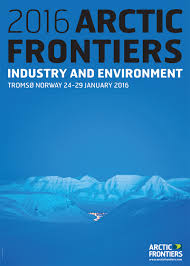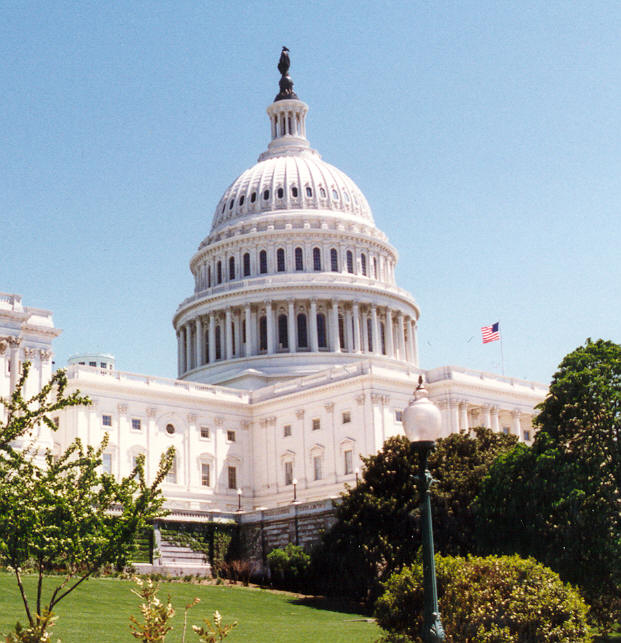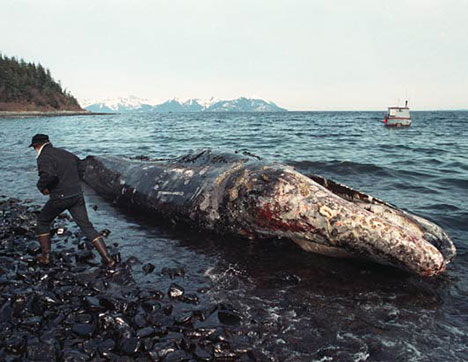|
|
|
|
|
|
|
|
 2016 Arctic Frontiers, January 24-29, 2015 (Tromso, Norway). 2016 Arctic Frontiers, January 24-29, 2015 (Tromso, Norway).The Arctic is a global crossroad between commercial and environmental interests. The region holds substantial natural resources and many actors are investigating ways to utilise these for economic gain. Others view the Arctic as a particularly pristine and vulnerable environment and highlight the need to limit industrial development. Arctic Frontiers 2016 will discuss the balance between resource utilisation and preservation, and between industrial and environmental interests in the Arctic. Envisioning a well-planned, well-governed, and sustainable development in the Arctic, how can improved Arctic stewardship help balance environmental concerns with industrial expansion? How can the industrial footprints from future business activities be minimised? And last, but not least, what role will existing and emerging technologies play in making industrial development profitable and environmentally friendly, securing a sustainable growth scenario for Arctic communities?
Today's Congressional Action:
The House is in session. The Senate is expected to begin consideration of S. 2012, the Energy Policy Modernization Act.
|
Arctic Youth Ambassadors Kick Off Leadership Program. It's been a whirlwind weekend for high school junior and newly named Arctic Youth Ambassador Brianna Riley, 17, of Kiana. "It's been quite the journey," said Riley. "At first I was nervous. I didn't know anybody. It was my first time coming to Anchorage by myself. But, it turns out everyone is so amazing." The Arctic Sounder
 Senate to Dive into Bipartisan Package. After a blizzard-induced delay, the Senate will today open debate on long-awaited broad and bipartisan energy reform legislation backed by Energy and Natural Resources Chairwoman Lisa Murkowski (R-Alaska). "I don't know about you all, but I spent a good portion of my weekend shoveling," Murkowski said on the Senate floor yesterday. "I feel stronger today, but I'm ready to be back at work where it's a little less rigorous." E&E News Senate to Dive into Bipartisan Package. After a blizzard-induced delay, the Senate will today open debate on long-awaited broad and bipartisan energy reform legislation backed by Energy and Natural Resources Chairwoman Lisa Murkowski (R-Alaska). "I don't know about you all, but I spent a good portion of my weekend shoveling," Murkowski said on the Senate floor yesterday. "I feel stronger today, but I'm ready to be back at work where it's a little less rigorous." E&E News
Coordinating US Actions to Address Arctic Challenges: The Arctic Executive Executive Steering Committee's First Year. About half of the State of Alaska -- an area larger than Texas -- lies in the Arctic. This makes the United States an "Arctic Nation", one of only eight with territory in the region. The others are Russia, Canada, Denmark (Greenland), Iceland, Norway, Sweden and Finland.The Arctic Ocean and closely connected shelf seas cover about 8 million square miles, and the adjacent Arctic lands total about five million square miles. Across this vast land area live only 4 million people, half of them in the Russian Arctic. The Alaskan Arctic is home to only about 140,000 people, at a population density of half a person per square mile (compared to 106 people per square mile in the Lower 48). Huffington Post
 [Commentary] President's Alaska Visit in 2015 Underscores US Focus on Arctic. President Obama's historic visit to Alaska last summer demonstrated the Arctic is a top priority for our nation. For the president, the Arctic isn't an abstraction: It is personal, made real by the extraordinary places he visited and remarkable people he met. His experience in Alaska generated concrete commitments that make our goal of an enduring Arctic more achievable. The president will dedicate $4 million to promote innovative energy opportunities for remote Alaska villages so that Arctic residents can have access to the affordable and sustainable energy options they need. Alaska Dispatch News [Commentary] President's Alaska Visit in 2015 Underscores US Focus on Arctic. President Obama's historic visit to Alaska last summer demonstrated the Arctic is a top priority for our nation. For the president, the Arctic isn't an abstraction: It is personal, made real by the extraordinary places he visited and remarkable people he met. His experience in Alaska generated concrete commitments that make our goal of an enduring Arctic more achievable. The president will dedicate $4 million to promote innovative energy opportunities for remote Alaska villages so that Arctic residents can have access to the affordable and sustainable energy options they need. Alaska Dispatch News
Researchers Measure Record Erosion on Alaskan Riverbank. According to estimates, Alaska's thawing permafrost soils cost the USA several 100 million dollars every decade - primarily because airports, roads, pipelines and settlements require relocation as a result of sinking ground and eroding river banks. An interna-tional team of researchers has now measured riverbank erosion rates, which exceed all previous records, along the Itkillik River in Alaska's north. In a stretch of land where the ground contains a particularly large quantity of ice the Itkillik River eats into the river bank at 19 metres per year, the researchers report in a study recently published in the journal Geomorphology. Arctic Journal
Alaska Marine Science Symposium Holds Tuesday Arctic Plenary Session. Today marked the second day of the Alaska Marine Science Symposium, being held at the Captain Cook Hotel in downtown Anchorage. Tuesday's topics included an Arctic Plenary session that focused on oceanography and climate change, fish, seabirds, marine mammals, human dimensions and ecosystem perspectives. Your Alaska Link spoke to Mammal Biologist Lara Horstmann-Dehn of the University of Alaska Fairbanks, about the Symposium's most pressing agenda this week. Horstmann-Dehn stated, "I'm a marine mammal biologist and study walruses and bowhead whales. Walruses have made the news I think a lot in the past 8 years now that they have hauled out on Point Lay and have gotten a lot of international news." Your Alaska Link
 New Oil-Spill Research in Arctic Reveals Surprising Results. While preventing an oil spill is no doubt preferable to launching an oil spill response, having the right response tools available at the tips of one's fingers can be invaluable - most especially in the carefully protected Arctic environment. How is marine life in the Arctic affected by crude oil? How is it affected by oil treated with dispersants and in situ burning techniques? Is Arctic marine life more sensitive to oil than marine life in warmer environments? RigZone New Oil-Spill Research in Arctic Reveals Surprising Results. While preventing an oil spill is no doubt preferable to launching an oil spill response, having the right response tools available at the tips of one's fingers can be invaluable - most especially in the carefully protected Arctic environment. How is marine life in the Arctic affected by crude oil? How is it affected by oil treated with dispersants and in situ burning techniques? Is Arctic marine life more sensitive to oil than marine life in warmer environments? RigZone
Cancer Rates Skyrocketing in Arctic, Especially Canada. Cancer was once a very rare occurrence among indigenous people in the far north. Now almost everyone has experienced a death of a loved one from the disease. A new international study shows that in the circumpolar region, rates of cancer have increased dramatically in the period from 1989 to 2008. Radio Canada International
|
Legislative Action
No Arctic legislation was formally considered yesterday.
|
|
Future Events
Alaska Forum on the Environment, February 8-12, 2016 (Anchorage, Alaska, USA). The Alaska Forum on the Environment (AFE) is Alaska's largest statewide gathering of environmental professionals from government agencies, non-profit and for-profit businesses, community leaders, Alaskan youth, conservationists, biologists and community elders. The diversity of attendees and comprehensive agenda sets this conference apart from any other. Each year there are over 80 technical breakout sessions and sensational Keynote Events. There will be a full week of sessions on climate change, energy, environmental regulations, cleanup and remediation, fish & wildlife, solid waste, and more.
** New this week** ARCUS DC Arctic Research Seminar Series, February 18, 2016 (Washington, DC). Does it seem as though the weather gods have gone crazy lately? It is not your imagination. The question on everyone's minds is why? And is it related to climate change? In this presentation, I will explain new research that links increasing extreme weather events with the rapidly warming and melting Arctic during recent decades. Evidence suggests that Arctic warming is causing weather patterns to become more persistent, which can lead to extremes such as droughts, cold spells, heat waves, and some flooding events.
5th Annual Fletcher Opening Arctic Conference, March 12, 2016. The Opening Arctic Conference builds on the Fletcher School's Warming Arctic International Inquiry series, to bring together high-level thought leaders from across disciplines, Fletcher's hallmark. Staged annually, Fletcher's event continues to address the foreign policy, economic, environmental and security implications of the opening Arctic, while dispelling myths.
Alaska Rural Energy Conference, April 26-28, 2016 (Fairbanks, Alaska, USA). The Alaska Rural Energy Conference is a three day event offering a large variety of technical sessions covering new and ongoing energy projects in Alaska, as well as new technologies and needs for Alaska's remote communities. Building on the growing success, the Alaska Energy Authority and the Alaska Center for Energy and Power have joined forces again to organize and sponsor the 10th annual Alaska Rural Energy Conference.
14th IATS Seminar, June 19-25, 2016 (Bergen, Norway). The University of Bergen (UiB) is honored to host the 14th IATS Seminar in Bergen, Norway, from Sunday 19 to Saturday 25 June 2016 in co-operation with the Network for University Co-operation Tibet-Norway, an academic network with the universities of Oslo, Bergen and Tromsų as partners. The convenor is Professor Hanna Havnevik, Department of Culture Studies and Oriental Languages, University of Oslo, and Chair of the Network.
Inuit traditions are a repository of Inuit culture and a primary expression of Inuit identity. The theme for the 2016 Inuit Studies Conference invites Elders, knowledge-bearers, researchers, artists, policy-makers, students and others to engage in conversations about the many ways in which traditions shape understanding, while registering social and cultural change. The institutional hosts of "Inuit Traditions," Memorial University of Newfoundland and the Nunatsiavut Government, invite you to contribute to an exchange of knowledge to be held in St. John's, Newfoundland and Labrador, October 7-10, 2016. Presentations on all aspects of Inuit studies will be welcome.
|
|

  
4350 N. Fairfax Drive, Suite 510
Arlington, VA 22203, USA
External links in this publication, and on the USARC's World Wide Web site ( www.arctic.gov) do not constitute endorsement by the US Arctic Research Commission of external Web sites or the information, products or services contained therein. For other than authorized activities, the USARC does not exercise any editorial control over the information you may find at these locations. These links are provided consistent with the stated purpose of this newsletter and the USARC Web site.
|
|
|
|
|
|
|
|
|